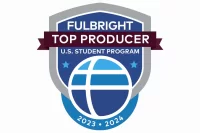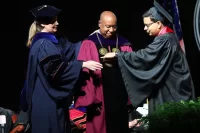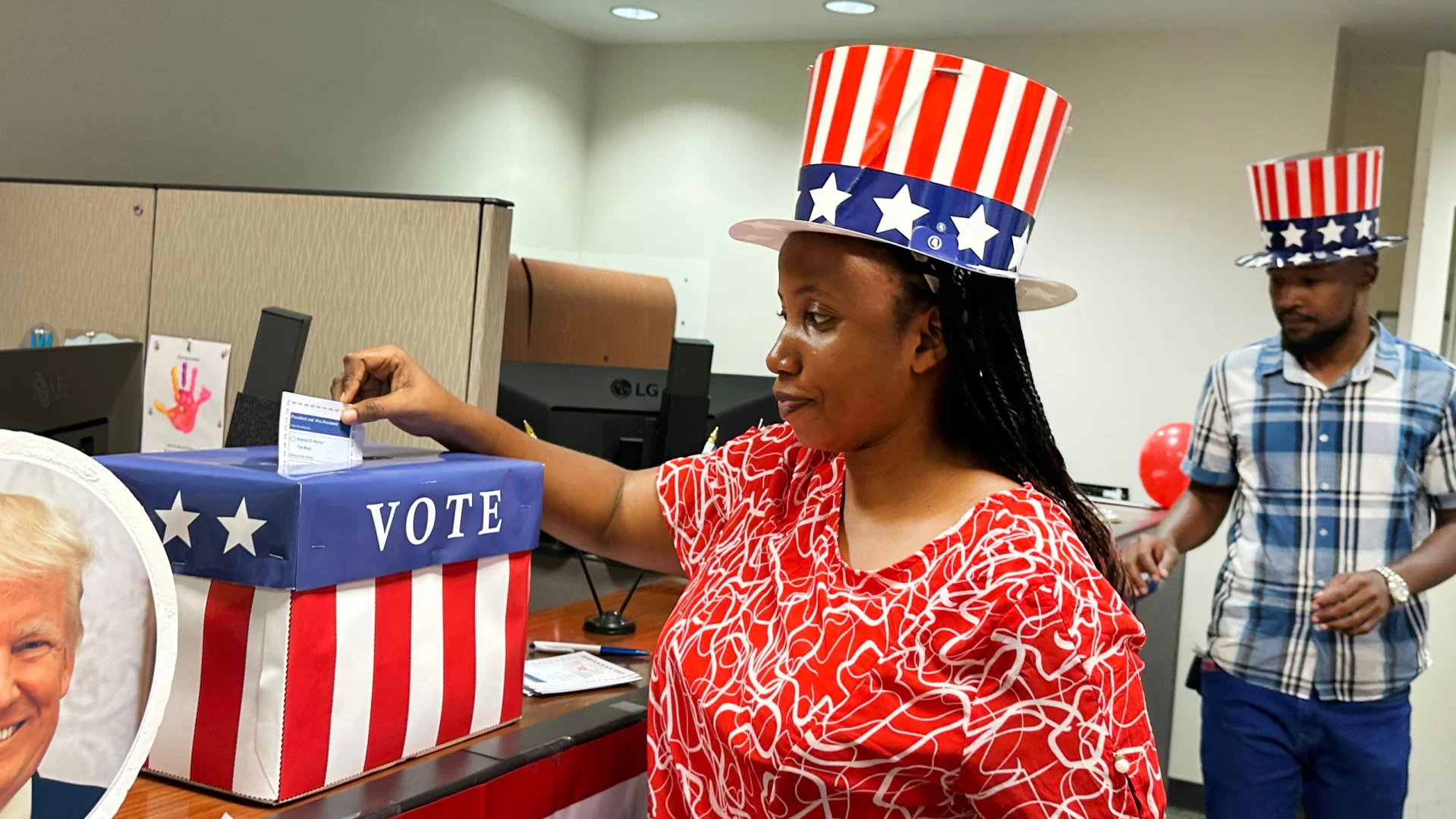
If Kamala Harris is elected president this year, she will be the shortest president in history. Who is the other shortest president?
That’s the favorite presidential trivia question of Stephen Engel, professor of politics and associate dean of faculty. If you really want to know the answer, he’ll tell you it’s James Madison, at 5 feet, 4 inches. But as co-host of Election Trivia Night in the Den, he also makes you promise not to take any points for that question.
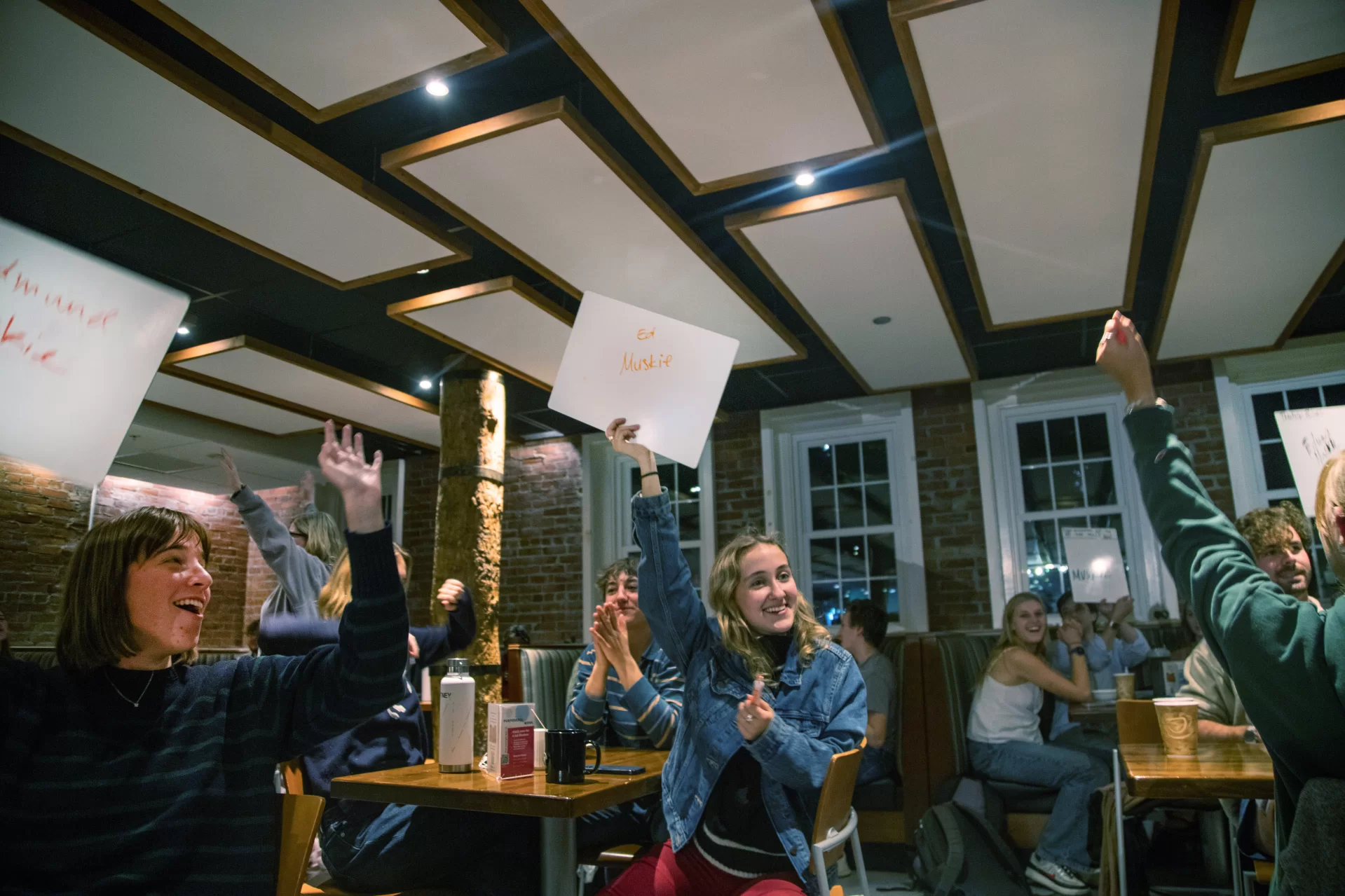
This year’s trivia night, held Oct. 9, marked the second round for Engel and his faculty co-host, Stephanie Kelley-Romano. The event debuted during the 2016 presidential race, and after skipping 2020 due to the pandemic, the duo brought it back for the first post-pandemic election cycle.
“In 2016 we just needed to have some fun, wanted some levity,” says Kelley-Romano, a professor of rhetoric, film, and screen studies. “And it’s fun to think of all the weird things that we end up putting in the trivia questions.”
Pre-event, Election Trivia Night already feels fun, with Kelley-Romano wearing bobcat pajama pants and receiving chicken bites from a student worker at the Den, while students pour into the room, separating into teams of three or four. They head to Engel, who is busy opening boxes of mini whiteboard erasers, to tell him their team names.
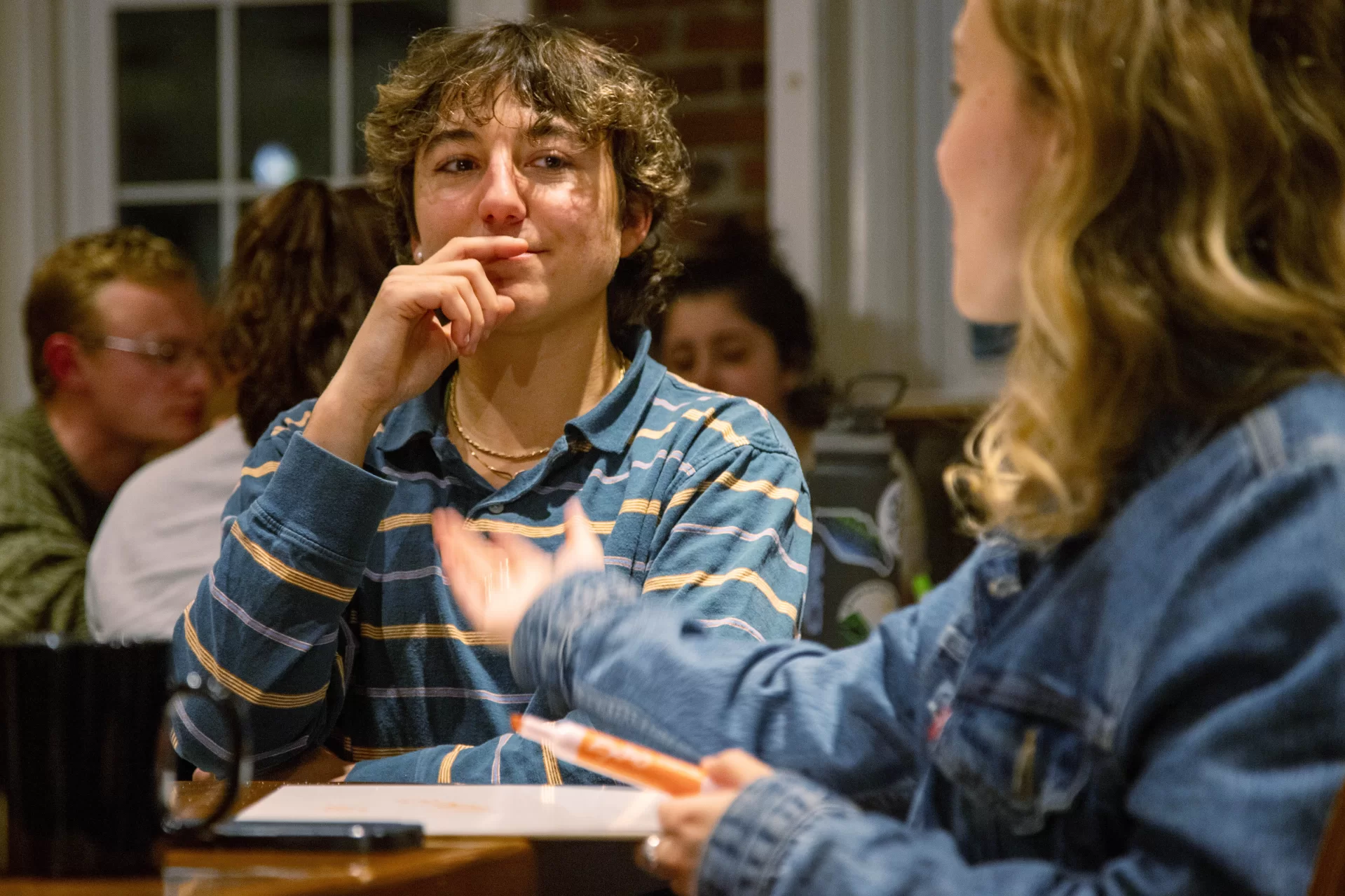
A half-dozen teams square off in the event, some with politically clever names, like “Pokemon Go to the Polls,” a name that plays off then-candidate Hillary Clinton’s awkward Pokemon joke from 2016.
The team El Gatos (“the Cats”), meanwhile, call out “Cinco!” when asked how many presidents they think went to NESCAC schools (it’s actually tres: Coolidge went to Amherst, Pierce to Bowdoin, and Garfield to Williams). The two-person team called “The Republicans” laugh with surprise when they are able to name the most Republican candidates from the 2024 primaries (nine!).
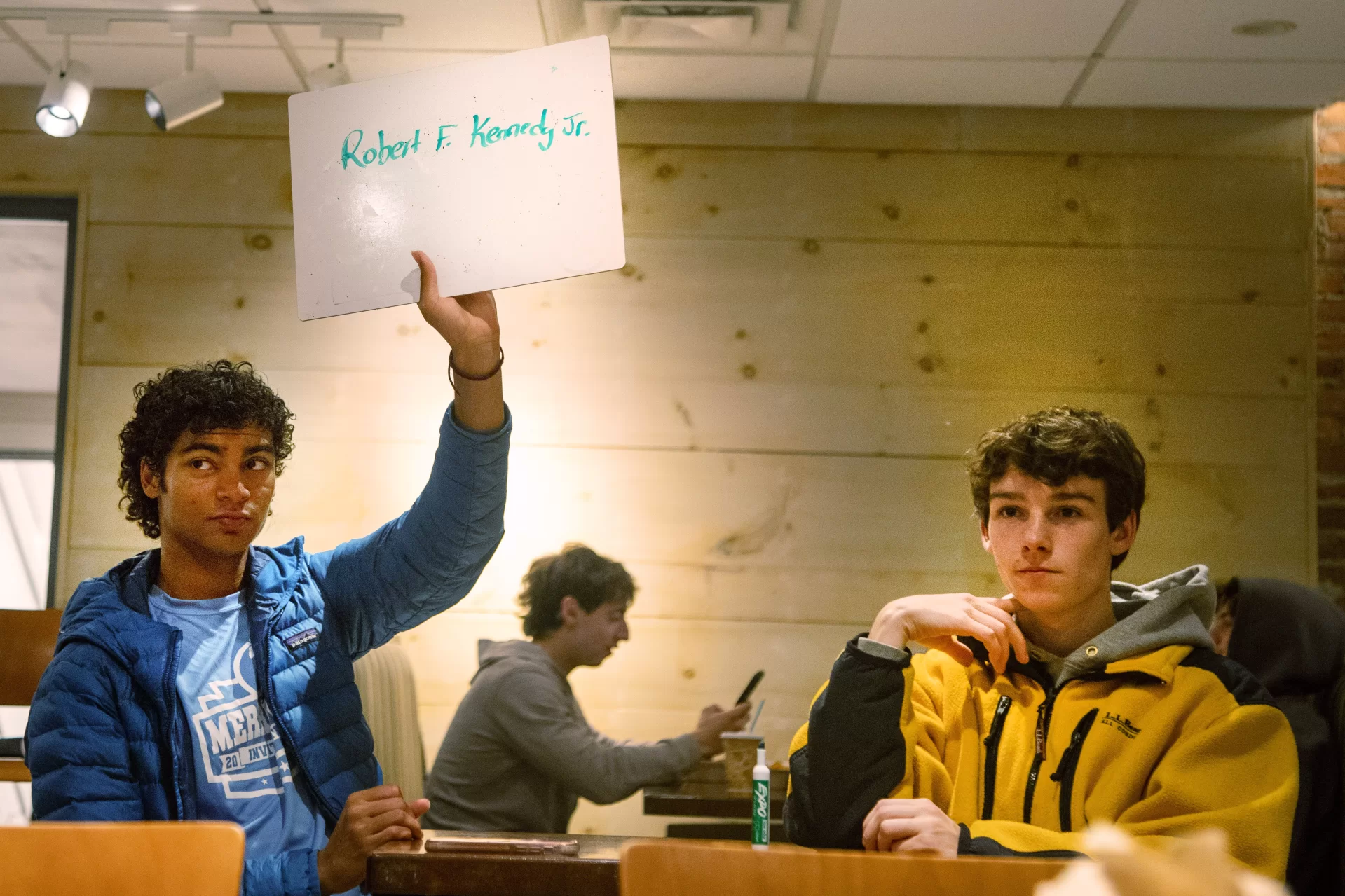
Leah Belber ’26 of Washington, D.C., makes an appearance fully in character as U.S. Sen. Claire Bennett, one of two candidates running mock presidential campaigns this fall as part of Kelley-Romano’s course “Presidential Campaign Rhetoric.”
Working the room as candidate Bennett, Belber takes a photo for her campaign’s social media feed. Shifting back to her student identity for the trivia competition, her team, named “Kingdom of Hawaii” as a nod to teammate Hugh Piper ’25 of Honolulu, Hawaii, finishes third.
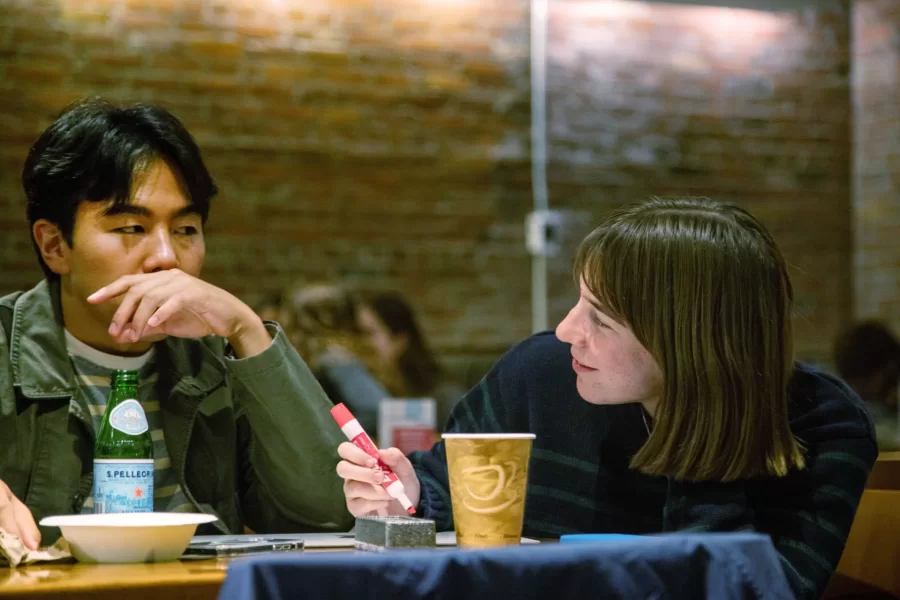
It’s clear that many of the students at the event are there because of Kelley-Romano, whether they are part of her presidential campaign rhetoric course, which has 17 students, or they know her outside of class.
They approach her, waving and laughing as they arrive, and she circles the tables while they answer, commenting on their responses without giving anything away. Engel balances her energy by standing at the front of the room, reading the questions. When asked who is better at trivia, each points to the other and they both laugh.
Last summer, Engel and Kelley-Romano were part of a working group that developed a wide-ranging slate of pre-election programming, which includes debate watch parties, talks by Bates faculty as well as visiting scholars, experts, and information nights. The program complements the Bates Votes initiative focused on voter education, registration, and mobilization.
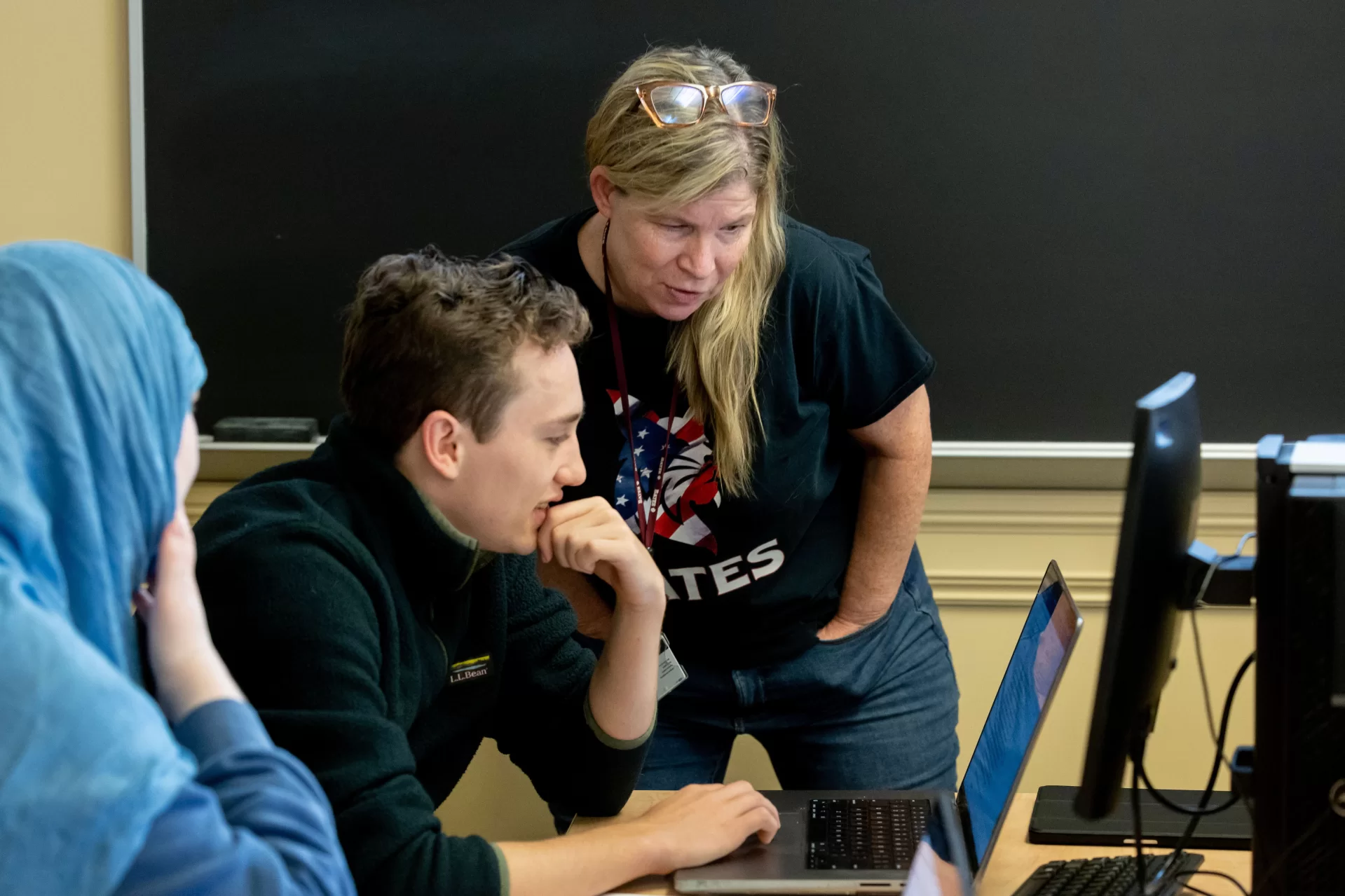
“Our goal with the whole series was to be very proactive during what we see as a very challenging campaign season,” says Engel. “So there are a lot of things we’re building into this series to help students, but also faculty and staff can take advantage of learning more, and just so they feel like they have a place to come to ask questions.”
We asked Engel how a trivia night fits into helping students navigate a difficult election season. “It’s an event where we’re not really engaging with the election, but it keeps the election front of mind. And it’s an event where students feel free to ask questions about registration, accessing the vote, and other ways they can be engaged,” Engel says.
It’s also about helping students gain a larger sense of familiarity with politics, opening up a dialogue, and creating community.
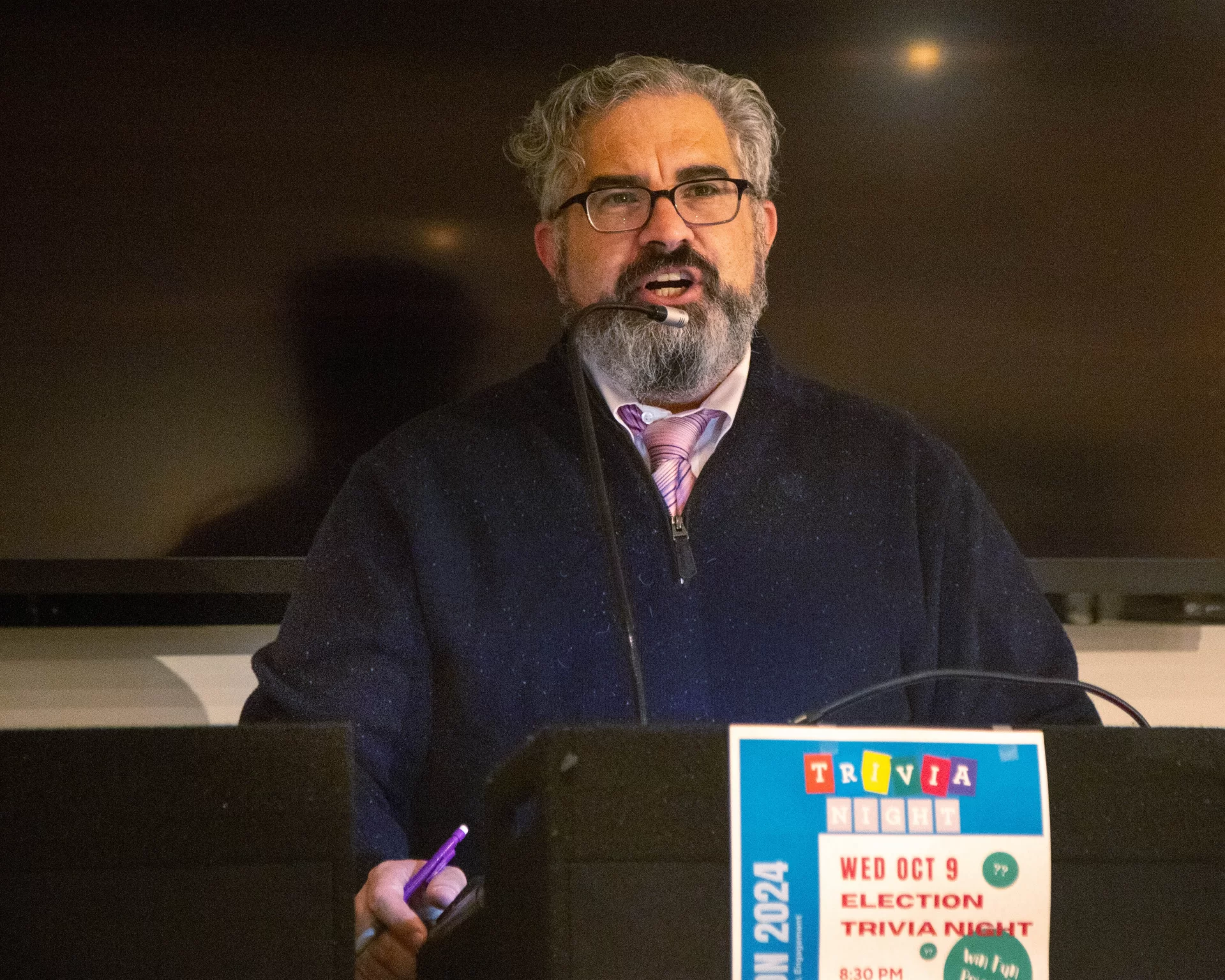
“I find that a lot of students at Bates want to be politically engaged and but don’t know how: Don’t know how to find their information, don’t know how to have these conversations. So this is a super low stakes way to laugh and learn stuff, like about the electoral college,” says Kelley-Romano.
“Creating an opportunity for students to come together in a heated moment in a way that lowers the temperature a little bit and maybe builds community, so that when we do have a disagreement with another student, you can fall back on, ‘But we hung out the night before,’” Engel says.
“So when things do get tense — because politics can get tense — you have that prior connection. And it’s events like this that build those connections.”
